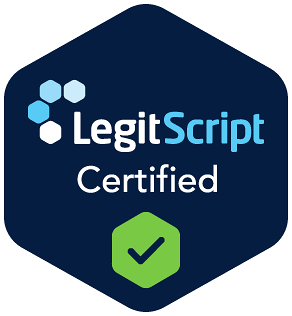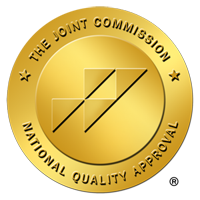Starting therapy is a powerful step, but it’s common to feel unsure about what to say or where to begin. Organizing your thoughts before a therapy session can help you maximize your time, reduce anxiety, and make progress toward your goals. A little preparation ensures you can communicate your feelings and experiences more clearly.
Whether you’re beginning your first session or are a few months in, these strategies can help you get the most out of your therapy at our Colorado treatment center.
Simple Steps to Prepare for Therapy
Feeling prepared can transform your therapy experience from daunting to empowering. Here are a few practical tips to help organize your thoughts:
- Jot Down Key Points: In the days leading up to your session, keep a simple list on your phone or in a notebook. Note any significant feelings, events, or challenges you experienced. It doesn’t have to be detailed—just a few words can jog your memory.
- Think About a Goal: Ask yourself: “What is one thing I’d like to feel better about by the end of this session?” It could be gaining clarity on a problem, learning a coping skill, or simply feeling heard.
- Review Your Last Session: Briefly think about what you discussed last time. Are there any lingering thoughts or feelings? Did you try any of the strategies your therapist suggested? Following up shows progress and continuity.
These simple habits can help build a strong therapeutic alliance and accelerate your healing journey. Our therapists at American Detox CO are skilled at guiding conversations, so remember, you don’t have to be perfectly prepared—just willing to engage.
How to Organize Your Thoughts for a Therapy Session
You’re in the car five minutes early, thumb scrolling through half-finished notes, wondering what will come out when the clock starts. Underneath the swirl is one simple worry: Where do I even begin? Because most sessions are just 45 to 60 minutes, a little prep can make the time feel less like a scramble and more like your space.
Begin with your body
Anxiety has a way of scattering thoughts. Before you even glance at your notes, try a slow belly-breathing exercise. This isn’t about “fixing” anything—it’s about giving your mind a steadier floor so you can line things up.
The three-tier list (a small structure that helps)
Cognitive behavioral therapists often open sessions with a short agenda—because it keeps the focus on what matters most to you. CBT uses agenda-setting for exactly that reason. You can try a pared-down version:
- Must talk about: one non-negotiable item.
- Nice if time: two extras that matter but aren’t urgent.
- Parking lot: anything you’ll save for later.
Keep it to phrases, not paragraphs. If you blank in the room, you can simply hand over your list and say, “Can we start here?”

A four-minute free-write
When your head feels crowded, even a short burst of writing can make it clearer. Set a timer for four minutes and spill everything about your must-talk topic—messy is fine. Research shows brief expressive writing reduces distress after stressful experiences. You don’t have to bring the page itself—sometimes just the sentence it uncovers is enough.
Words to lower the threshold
Worrying about “saying it right” is common, especially early on when the first sessions set tone and trust. Simple scripts can make it easier:
- “I may talk in circles before I land—can you help me slow it down?”
- “If I get quiet, it’s me sorting. Could you check in after a minute?”
- “I wrote a list—can we start with this one?”
Therapists are trained to support without judgment. Naming your preferences just helps them help you faster.
If your appointment is online
Tech glitches can derail a session. Take five minutes the day before to test your device for telehealth. Put the camera at eye level, silence alerts, and keep your list open off-screen. If privacy is tough at home, a parked car or headphones in a quiet outdoor spot can be enough.
Know you have a say in records
If you’re uneasy about what’s written down, remember you have rights: you can ask to access your records. You can also request a brief visit summary, or one focus line for between sessions. This isn’t being “difficult”—it’s partnering in your own care.
For those preparing for a new program, making a list of what to bring (and what not to) can ease the stress. American Detox offers a clear guide on preparing for treatment so you can show up with fewer question marks.
A ten-minute organizer to reuse
Before each session, try:
- Regulate (1 minute): six slow breaths.
- Name (2 minutes): one must, two if-time.
- Write (4 minutes): a free-write on the must.
- Script (30 sec): one sentence you’ll actually say.
- Logistics (30 sec): check link, charger, water, door closed.
Under ten minutes. Repeatable. Yours.
After the session ends
Pause before you rush back to daily life. Ask yourself:
- What felt useful enough to try again?
- What’s one sentence I want to carry into next time?
Capture those in your notes. Future-you will be grateful.
Quick FAQs
What if I freeze in a therapy session?
Hand over your list and say, “Can we start here?” Your therapist will help shape the order.
Is bringing notes to therapy okay?
Yes. Notes take pressure off your memory and make sure your priorities don’t get lost.
How much do I need to share in therapy?
Just as much as feels safe today. Therapy unfolds in layers; it’s not a one-time test.
What if I need urgent help between sessions?
If you’re in immediate danger, call 911. In the U.S., you can dial 988 for the Suicide & Crisis Lifeline—free and available 24/7.



